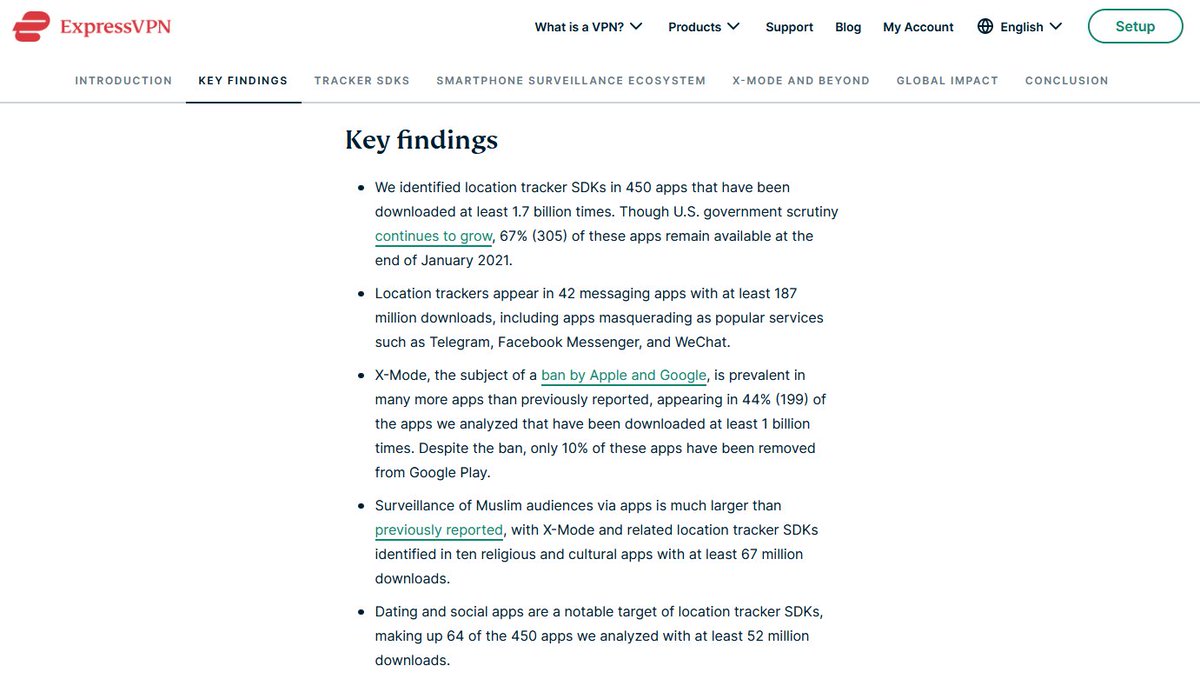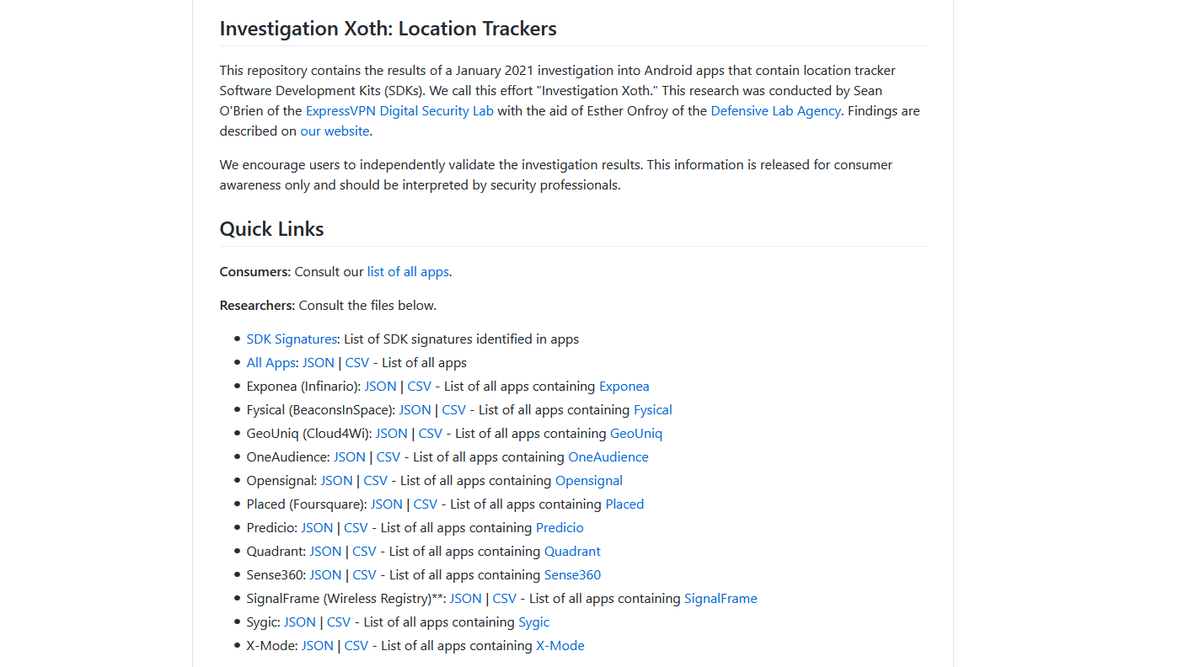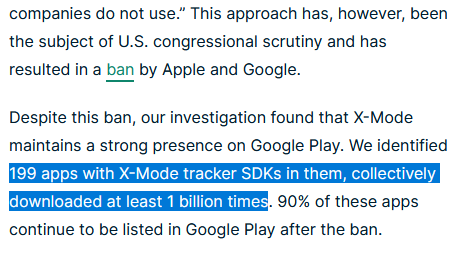
New: Perhaps the most comprehensive report on how mobile apps secretly share location data with companies most people never heard of, who then sell it to all kinds of interested parties from advertisers to US military contractors, by @seanodiggity+@U039b:
expressvpn.com/digital-securi…
expressvpn.com/digital-securi…

Details on the findings on GitHub:
github.com/expressvpn/xot…
Articles:
techcrunch.com/2021/01/28/x-m…
vice.com/en/article/epd…
github.com/expressvpn/xot…
Articles:
techcrunch.com/2021/01/28/x-m…
vice.com/en/article/epd…

In December, Google+Apple announced to ban apps that embed tracking software operated by X-Mode, a location data broker who has sold location data to US military contractors.
The investigation found 199 apps with X-Mode embedded, 1 billion downloads, 90% of them still available.
The investigation found 199 apps with X-Mode embedded, 1 billion downloads, 90% of them still available.

Many more apps than we previously knew of contain tracking software by X-Mode, including muslim prayer apps, dating apps, navigation apps, travel guides, weather apps, compass apps, games, fitness apps, QR code scanners…
Here's the full list of 199 apps:
github.com/expressvpn/xot…
Here's the full list of 199 apps:
github.com/expressvpn/xot…

The investigation is based on static analysis of the apps' source code that contained X-Mode tracking at some point over the past year.
TC did some additional testing of the most popular apps and found that several were sending location data to X-Mode: techcrunch.com/2021/01/28/x-m…
TC did some additional testing of the most popular apps and found that several were sending location data to X-Mode: techcrunch.com/2021/01/28/x-m…

X-Mode complains that it's being singled out as it "collected similar mobile app data as most advertising SDKs".
True. All of them must be banned. Not by Google/Apple, but by law.
And #whatabout platform utilities? Yep, they shouldn't be allowed to *exploit* location data, too.
True. All of them must be banned. Not by Google/Apple, but by law.
And #whatabout platform utilities? Yep, they shouldn't be allowed to *exploit* location data, too.

Btw. I love that X-Mode openly admits that only 'a majority' of its app publishers had 'secondary consent' to sell location data.
(not to mention that 'secondary consent' might be a synonym for 'non-informed consent' or 'no consent')
(not to mention that 'secondary consent' might be a synonym for 'non-informed consent' or 'no consent')

The report didn't only find tracking software by X-Mode in mobile apps, but also by several other location data brokers.
Placed, for example, was owned by Snap until 2019 and is now owned by Foursquare, formerly a location-based social network, now a major location data broker.
Placed, for example, was owned by Snap until 2019 and is now owned by Foursquare, formerly a location-based social network, now a major location data broker.

In 2019, we observed Placed/Foursquare (and Fysical) receiving location data from users in GDPR space:
forbrukerradet.no/side/complaint…
Predicio is a French data broker who was caught selling location data to a US firm who sells to ICE+FBI:
https://twitter.com/WolfieChristl/status/1217081401893380097
forbrukerradet.no/side/complaint…
Predicio is a French data broker who was caught selling location data to a US firm who sells to ICE+FBI:
https://twitter.com/WolfieChristl/status/1348670717928361992
SignalFrame? The WSJ reported on the company and its national security business/projects in Nov 2020:
"SignalFrame’s product can turn civilian smartphones into listening devices ... that detect wireless signals from any device that happens to be nearby"
wsj.com/articles/next-…
"SignalFrame’s product can turn civilian smartphones into listening devices ... that detect wireless signals from any device that happens to be nearby"
wsj.com/articles/next-…

There is lots of evidence in the report, for further investigation by journalists and regulators, especially EU data protection authorities.
Not least, with regards to data flows and business relationships between X-Mode, Placed/Foursquare and other location data brokers:

Not least, with regards to data flows and business relationships between X-Mode, Placed/Foursquare and other location data brokers:


"When we reported on the findings earlier this week, Google told us that all Android apps with X-Mode's code had been removed"
But Google didn't remove all of them, surprise!
theregister.com/2021/02/06/goo…
But Google didn't remove all of them, surprise!
theregister.com/2021/02/06/goo…
• • •
Missing some Tweet in this thread? You can try to
force a refresh










